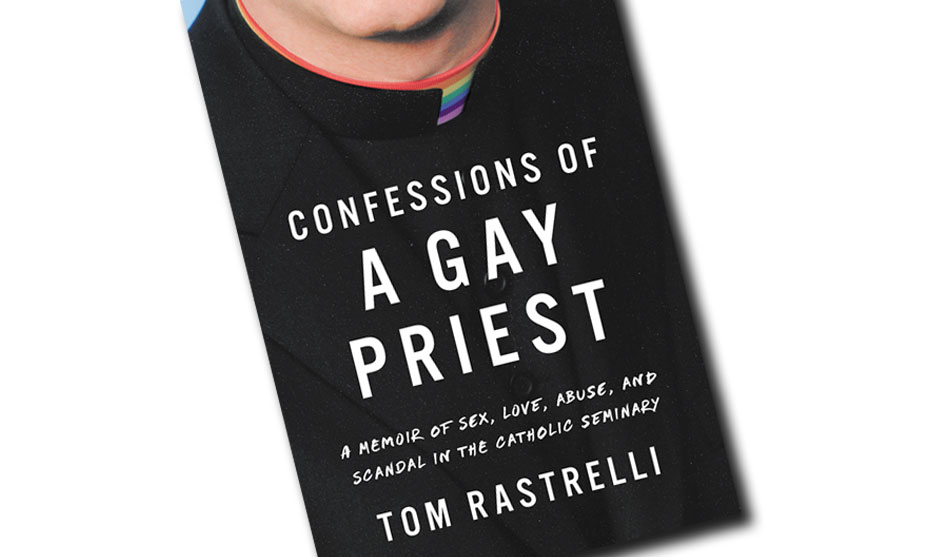by Tom Rastrelli (University of Iowa Press 2020) $19.95; 328 pp.
Though he’d always known that he liked boys, little Tommy Rastrelli pretended the opposite when he was in grade school because all good Catholics got married. His family was devout, and Rastrelli never questioned
God’s love — not even after he was repeatedly molested by a doctor in his Iowa hometown.
For several reasons, he never told his parents about the abuse, enduring it for years until he’d convinced them that he was too old for a pediatrician. That God hadn’t saved him from a predator made Rastrelli slowly lose his faith … and his self-respect. He stopped attending Mass and began questioning the Church’s teachings. But then God called a shocked Tom Rastrelli to the priesthood.
It happened while he was at college, and the whole idea quickly consumed him. Gone was the plan to major in theater; instead, Rastrelli began to explore a world steeped in mystery and ritual but overlaid with fear. Always believing that testimony against the doctor could save others from the same abuse, he took legal action, knowing that scandal could ruin his chance to attend seminary.
There were many things undiscussable, in fact, and the court case was only half of it. As he progressed in his journey to ordination, the secrets included priestly kisses, caresses and soft lies that a backrub was “just” a backrub. At nearly every gathering, Rastrelli was approached for sex or touched inappropriately, led to believe that celibacy had wiggle-room, plied with alcohol or favors while having to deal with it alone.
Confessions of a Gay Priest is a hard, hard book to read — it’ll make you squirm; it’ll make your eyebrows raise; you’ll want to toss it on the street and let semis run it over. And yet, it’s stay-up-all-night compelling. Beginning with his ordination (so you know don’t know the end of the story), Rastrelli tells a tale that will further shock Catholics already reeling from church-related scandals. Rastrelli is sometimes extremely graphic, both in the bedroom and in his various emotional states. He doesn’t pull back the curtains on his experiences, he rips them down and burns them. He used pseudonyms but tells details before softening his harshness with beautiful language, strong faith and poetic distractions that play with a reader’s sympathy.
You can’t beat a book like that, though its graphic nature needs to again be underscored. For a reader who can endure endless queasiness, Confessions of a Gay Priest is worth deep examination.
— Terri Schlichenmeyer













